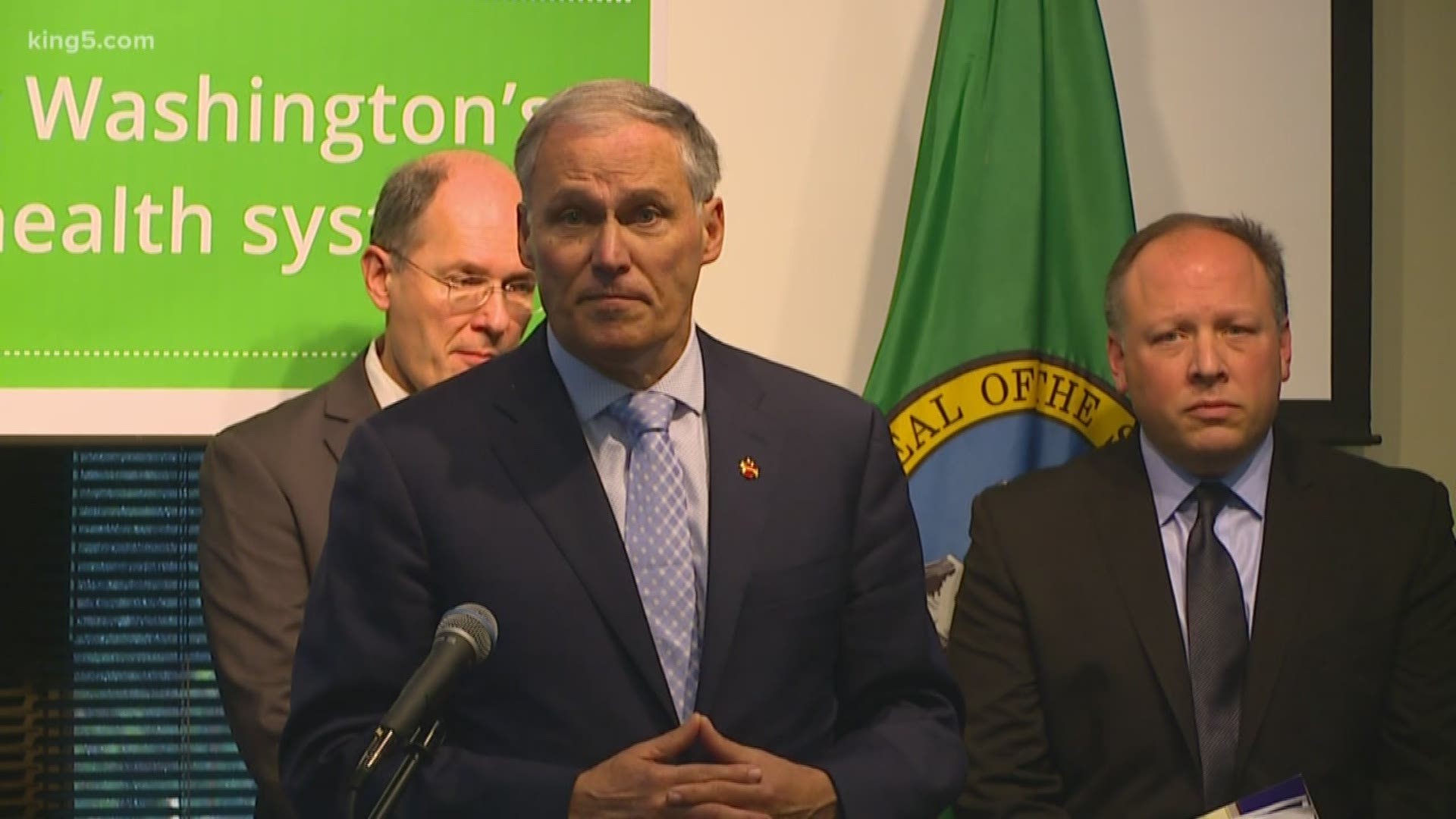OLYMPIA, Wash. — Editor's note: The video above originally aired in December 2018 when Governor Jay Inslee pitched proposals about the future of mental health care.
Washington legislators took substantial steps to reshape the mental-health system, including funding for new facilities, legislation to increase the number of qualified workers, and the creation of new types of treatment centers.
The Seattle Times reports that lawmakers approved the plan - which sprawls across two different state budgets, as well as several other bills - in the legislative session that ended April 28.
The work comes after years of court orders and federal inspections that meticulously documented the poor treatment of psychiatric patients in the state's care, as well as a steep shortage of treatment beds and staffers to operate them.
"We've never had a plan before," said Rep. Joe Schmick, R-Colfax, part of a bipartisan group of lawmakers who worked on the issue. "Always before, it's just 'we're going to throw money at something and we're going to put out fires.'"
It remains to be seen how the complex plan comes together in the coming years. Grants will have to be awarded, facilities sited, permitted and built, and staff must be found to run them.
But, "I think we made really big steps toward moving us toward a true community-based mental-health system," said Sen. David Frockt, D-Seattle, who worked on capital-budget negotiations.
The 2019-21 capital-construction budget spends roughly $33 million for pre-design and design of a new behavioral health teaching hospital at the University of Washington. The facility would train mental-health professionals while also providing as many as 150 treatment beds.
That budget includes about $118 million toward building new facilities, or expanding existing ones, across the state. Among other places, it funds projects in Bremerton, Centralia, Colville, Edmonds, Spokane, Issaquah, Sedro-Woolley, and for the Jamestown S'Klallam tribe.
That money also provides for psychiatric beds at new or expanded community hospitals in Everett, Auburn and Yakima.
Lawmakers included some competitive grant money for projects still to be determined and funds to build a 16-bed state-run facility and a 48-bed facility that would be partly state-run. Also, there is $24 million in the state Housing Trust Fund for residential placements and case management for people struggling with chronic mental-health issues.
The budget also pays for building improvements to the state's two psychiatric hospitals, Western State and Eastern State.
After years of inspections revealed unsafe conditions, federal regulators last year decertified Western State Hospital, located in Lakewood. That cost the state $53 million in annual federal funding.
The plan calls for most patients committed to the state hospitals through civil courts to be moved into community facilities. But that will take years, and both hospitals are still expected to handle patients coming through the criminal courts in the future.

